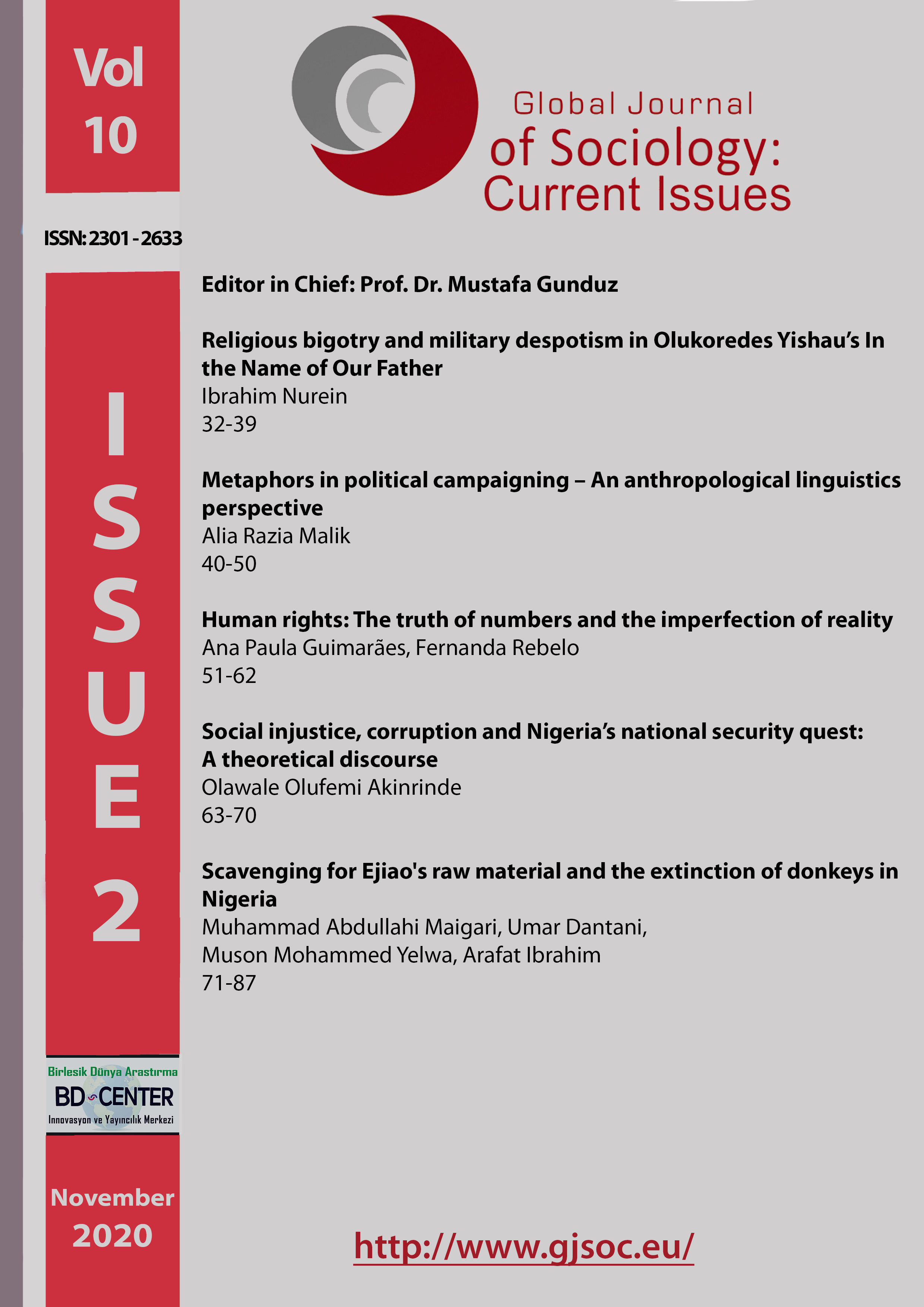Religious bigotry and military despotism in Olukoredes Yishau’s In the Name of Our Father
Main Article Content
Abstract
Although religious bigotry and military tyranny have been overtly delineated by the first and second generation novelists, especially the ones who witnessed the military maladministration in Nigeria, the contemporary Nigerian novelist also attempts to contribute and provide with more resources on the rights of the people and the liberty to be free from the imposition of religious and/or political doctrines that are socially constructed upon the people. In the Nigerian context, religious and political/military despotism are considered to go hand in hand since their ideologies formulate part of the hegemonic, determinist superstructures that push the masses to be at the corner of receiving end. Within Nigeria’s copious output of literature written in English, this paper, using Yishau’s debut novel In the Name of Our Father as a case study, attempts to develop a bird’s eye view of the religious and military issues in Nigerian society. Adopting the praxis of Marxist critical thinking, this paper acknowledges how the author, Yishau, allows his intellectual capacity in the form of a novel to direct his writing in relation to the religious bigotry and military despotism that spearheaded Nigerian society, most significantly in the military regime between 1966 and 1999. The outcome of this paper is that Yishau has accorded a pedigree for himself on the shore of Nigerian novels by leveraging critical attention to unfold the thematic precepts of religious bigotry and military despotism in his first literary, textual appearance.
Â
Keywords: Religious bigotry, military despotism, Nigerian novel.
Downloads
Article Details

This work is licensed under a Creative Commons Attribution 4.0 International License.
Authors who publish with this journal agree to the following terms:- Authors retain copyright and grant the journal right of first publication with the work simultaneously licensed under a Creative Commons Attribution License that allows others to share the work with an acknowledgement of the work's authorship and initial publication in this journal.
- Authors are able to enter into separate, additional contractual arrangements for the non-exclusive distribution of the journal's published version of the work (e.g., post it to an institutional repository or publish it in a book), with an acknowledgement of its initial publication in this journal.
- Authors are permitted and encouraged to post their work online (e.g., in institutional repositories or on their website) prior to and during the submission process, as it can lead to productive exchanges, as well as earlier and greater citation of published work (See The Effect of Open Access).
